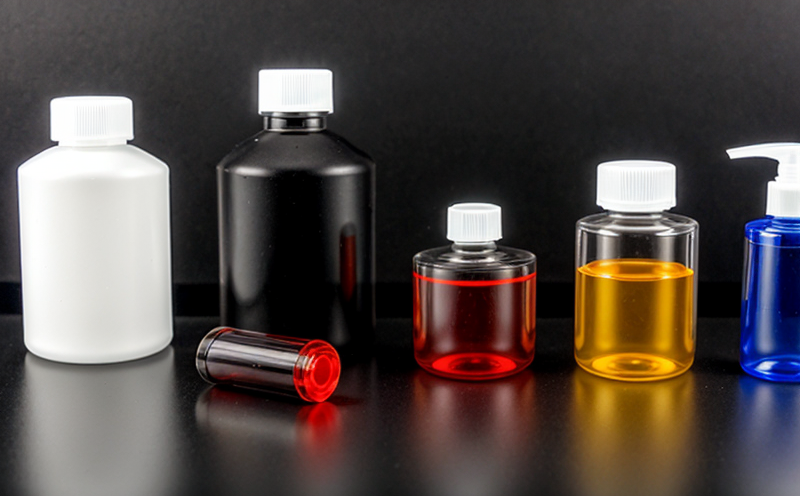ISO 16000 Emission Testing of Nanoparticle Modified Polymers
The ISO 16000 series of standards provides a comprehensive framework for the measurement and assessment of indoor air quality. One of its key components is ISO 16000-9, which focuses on the determination of volatile organic compounds (VOCs) and other emissions from materials used in buildings and consumer products.
When it comes to nanoparticle modified polymers, these materials are increasingly being incorporated into a variety of applications due to their unique properties such as enhanced durability, thermal stability, and mechanical strength. However, the introduction of nanoparticles can also lead to an increase in emissions from these materials, particularly volatile compounds that may be detrimental to indoor air quality.
Our ISO 16000 Emission Testing service is designed specifically for nanoparticle modified polymers to ensure that any potential risks associated with their emissions are identified and mitigated. This testing ensures compliance with international standards while also providing valuable insights into the environmental impact of these materials. The process involves rigorous laboratory analysis using state-of-the-art instrumentation, which can detect even trace levels of emitted compounds.
Our team of experts will guide you through every step of this process, from specimen preparation to final reporting. We understand that accurate and reliable test results are crucial for making informed decisions about the use of these materials in various industries. Our services are tailored not only to meet regulatory requirements but also to help you optimize your product development processes.
For those looking into the long-term effects, it's important to note that certain nanoparticles can have adverse health impacts when released into the environment or during manufacturing processes. By conducting thorough emissions testing according to ISO 16000 standards, we aim to provide a safer alternative by identifying problematic compounds early in the design phase.
In summary, our ISO 16000 Emission Testing of Nanoparticle Modified Polymers service offers comprehensive evaluation and analysis services that are essential for ensuring compliance with relevant international regulations. It also helps manufacturers improve product quality and reduce potential risks associated with nanoparticle emissions.
Industry Applications
| Industry | Application |
|---|---|
| Packaging & Food Contact Materials | Evaluating the safety of packaging materials that may come into contact with food products. |
| BUILDING MATERIALS | Determining indoor air quality impacts from construction materials containing nanoparticle additives. |
| Electronics & Consumer Products | Assessing emissions from electronic components and consumer goods that utilize nanoparticles. |
| MEDICAL DEVICE MANUFACTURING | Ensuring the safety of medical devices where nanomaterials are employed, especially those intended for use in healthcare settings. |
| Industry | Application |
|---|---|
| Automotive Manufacturing | Testing the emissions from automotive parts and finishes that incorporate nanomaterials to enhance performance or durability. |
| Fashion & Textiles | Evaluating textile treatments containing nanoparticles for their impact on indoor air quality during use.|
| Paper & Paper Products | Assessing the emissions from paper products that include nanomaterials to improve their properties or functionality. |
Why Choose This Test
The ISO 16000 Emission Testing of Nanoparticle Modified Polymers service is a critical step in ensuring the safety and quality of products that incorporate these advanced materials. By conducting this test, you can:
- Meet regulatory requirements imposed by international standards.
- Ensure compliance with local environmental protection laws.
- Identify potential health risks associated with nanoparticle emissions early on in the design process.
- Evaluate the overall performance and reliability of your products under various conditions.
- Gain valuable insights into how changes to your formulation might affect emission levels.
Our rigorous testing procedures ensure that you get accurate, reliable results every time. This allows you to make confident decisions about the use of nanoparticle modified polymers in your products, knowing that they meet stringent quality and safety standards.
Environmental and Sustainability Contributions
- Emission testing helps reduce environmental impact by identifying potential sources of air pollution early in product development.
- By ensuring compliance with international standards, the service supports sustainable manufacturing practices that minimize waste and energy consumption.
- The results from this testing contribute to improving indoor air quality, which is particularly important for public health and safety.
In summary, our ISO 16000 Emission Testing of Nanoparticle Modified Polymers service plays a vital role in promoting environmental responsibility within the manufacturing sector. It not only ensures regulatory compliance but also contributes positively towards creating safer products for both consumers and the environment.





